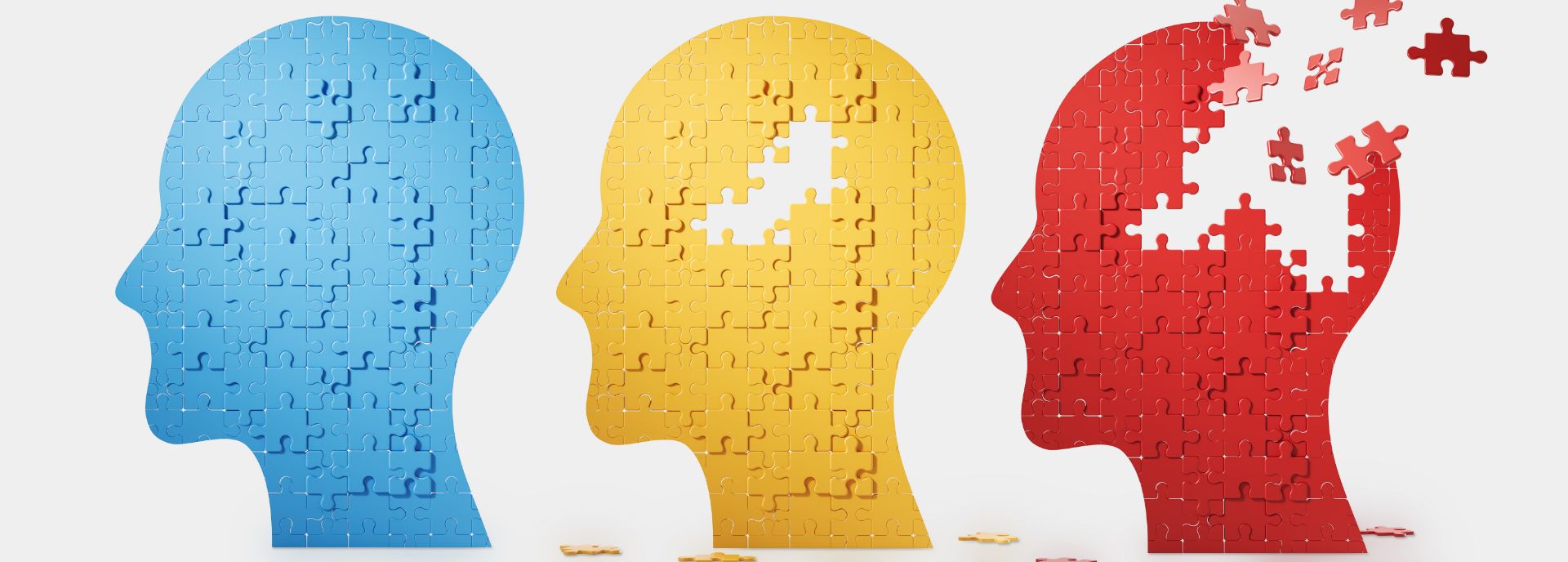
Young-onset dementia (YOD), which refers to any type of dementia that develops in people below the age of 65 years, is increasingly recognised as a significant public health issue. More people are diagnosed with YOD globally, and Singapore is no exception.
In Singapore, over 100 new cases of YOD are identified every year at the National Neuroscience Institute (NNI). About 3,700 people here have this condition, with people as young as 40 years being diagnosed.
Early diagnosis and treatment are essential, as treatment can result in less cognitive decline, better clinical and functional status, and lower mortality. But, there appears to be some reluctance among Singaporeans to get tested, according to a recent survey. Released in August 2024, the study was conducted by Milieu Insight and Dementia Singapore. It found that about half of the Singaporean respondents were unlikely to get tested for dementia, even if they noticed that they were more forgetful than usual or had problems with completing routine tasks. This is worrying as delays would result in later diagnosis and treatment, leading to less favourable outcomes.
Globally, the number of people with dementia is expected to increase from 40.1 million in 2015 to 55.4 million in 2025, and approximately 5% of them are people with YOD. Worldwide, the number of people with dementia is expected to grow to 82 million by 2030, and 152 million by 2050, according to Dementia Singapore.
In Southeast Asia, which represents 10% of the global population, more can be done to study the regional clinical characteristics of dementia, and the risk factors for dementia progression. In Singapore, a longitudinal study, published in November 2021, sought to shed light on some of the more pertinent issues. The research assessed a consecutive series of 1,606 people with dementia from 2010 to 2019; the subjects were from a tertiary memory clinic in the city-state.
The study revealed that YOD accounted for approximately 28.5% of all dementia cases at the memory clinic. The most common diagnosis among them was Alzheimer’s disease (59.8%), followed by vascular dementia (14.9%) and frontotemporal dementia (11.1%). A study from Hong Kong also reported that among YOD patients, Alzheimer’s disease was the most frequent diagnosis (70%); this was followed by frontotemporal dementia (22%), and Parkinsonian disorders (8%). The mean age of symptom onset was around 57.8 years, underscoring the impact of early-onset dementia on younger individuals.
However, epidemiological studies of dementia across Asia can show markedly different results, mostly attributable to genetic, environmental, and sociocultural factors. For example, society may view symptoms of cognitive decline as part of the natural aging process, or the medical professionals are simply not equipped to recognise the symptoms, which will lead to low awareness and understanding of dementia, and late diagnosis and treatment.
From the research on YOD among Asian populations, several factors stand out. High levels of education are linked to a steeper cognitive decline among YOD patients, suggesting that educational attainment may influence disease progression. Additionally, comorbid conditions such as cerebrovascular disease have been found to exacerbate cognitive decline in older patients. Genetic factors also play a role; for instance, certain hereditary diseases are more prevalent in specific ethnic groups, which suggest that more thorough evaluations are required for patients presenting cognitive symptoms.

Living with dementia can be challenging for the patients and their families, caregivers and people around them. In light of Singapore’s growing number of YOD diagnoses as well as the rapidly aging population, here are three broad-based strategies to support people with dementia, and the people closest to them.
1) Education and awareness:
In the community, increasing awareness about dementia can help combat stigma and hopefully, encourage early diagnosis. Early diagnosis allows for timely intervention, including lifestyle modifications, medication, and cognitive rehabilitation.
Milieu Insight’s Chief Operating Officer Stephen Tracy points out, “Dementia profoundly impacts not only those diagnosed, but their loved ones as well. What really stood out to me is that our study reveals that one in three people are unfamiliar with the condition and its symptoms. Moreover, only 20% feel prepared to support a loved one if they were to develop symptoms.”
Educational programmes targeting healthcare professionals, families and the wider community are crucial, to improve understanding and management of the condition.
2) Support networks and caregiving:
Establishing strong support systems involving family, friends, and community resources is vital. Support groups can provide emotional assistance and practical advice for caregivers. The Milieu Insight and Dementia Singapore survey uncovered a shared desire among caregivers for more specialised programmes catering to individuals with dementia, such as the creation of daycare centres and home-based assistance and personal care.
As Dementia Singapore’s Chief Executive Officer Jason Foo acknowledges, “We cannot underestimate the stressful effects of having to care for a person with dementia. The uncertainty, coupled with the need to make drastic adjustments to their work plans and lifestyle, is daunting, to say the least. Left unchecked, depression can quickly set in if they do not receive proper care and support.” To this end, Dementia Singapore has rolled out several initiatives, such as a mobile app called CARA, which allows caregivers to leverage the collective efforts of the community. It has also partnered with the Municipal Services Office to expand the reach of the app’s key services.
The disruption to the lives of people with YOD are somewhat different from those who are older, and services and programmes are thus also differentiated. For one, if the young person cannot hold down a job, financial difficulties will follow. A young person may also be the parent of young kids, with the attendant parental responsibilities. To address this, Dementia Singapore’s Dementia Social Club, launched in November 2021, is a care model that taps on various resources to provide a “family approach” to support people with dementia, including those with YOD.
Caregivers to people with dementia have a wish list of the support they hope to get. The top five on their list are: (1) financial schemes for caregivers to reduce financial burden (66%); (2) more programmes for people with dementia (56%); (3) extra help from another caregiver (52%); (4) training on how to support people with dementia (50%); and (5) mental health support for caregivers (50%).
3) Cognitive and physical health management:
Encouraging activities that stimulate cognitive function, such as puzzles, reading, or engaging in the arts, can help slow cognitive decline. Positive emotional engagements like regular social interactions, maintaining physical health, and having a well-balanced diet, all of which support overall wellness, are also important.
Structured daily routines can provide stability and reduce anxiety for people with dementia, so it is important to develop these. Familiar environments and predictable schedules also enhance comfort levels.
People with YOD are more likely to experience problems with their motor skills (including movement and coordination), and cognition (affecting planning and executive functions). Access to professional care tailored to their needs can significantly improve their quality of life. This includes occupational therapy focused on daily living skills and memory aids.
Early diagnosis and treatment can go a long way to improve the quality of life for people with dementia. With increasing awareness of the condition, there is a growing network of initiatives and support systems to tap into. Start with a visit to the website of Dementia Singapore.